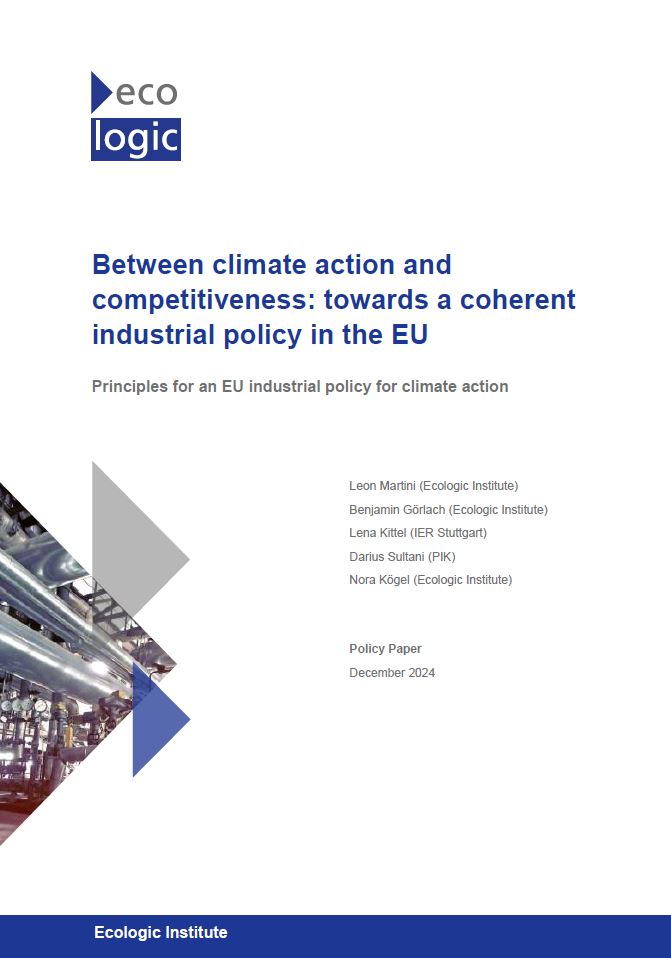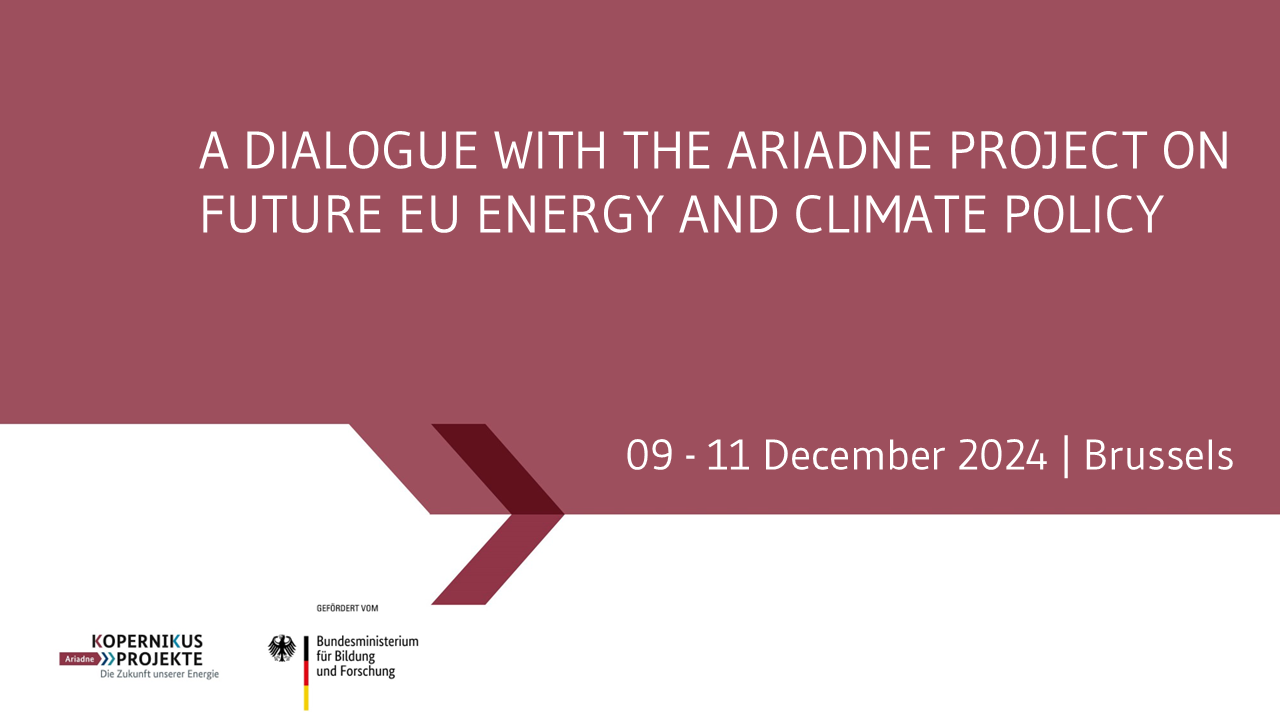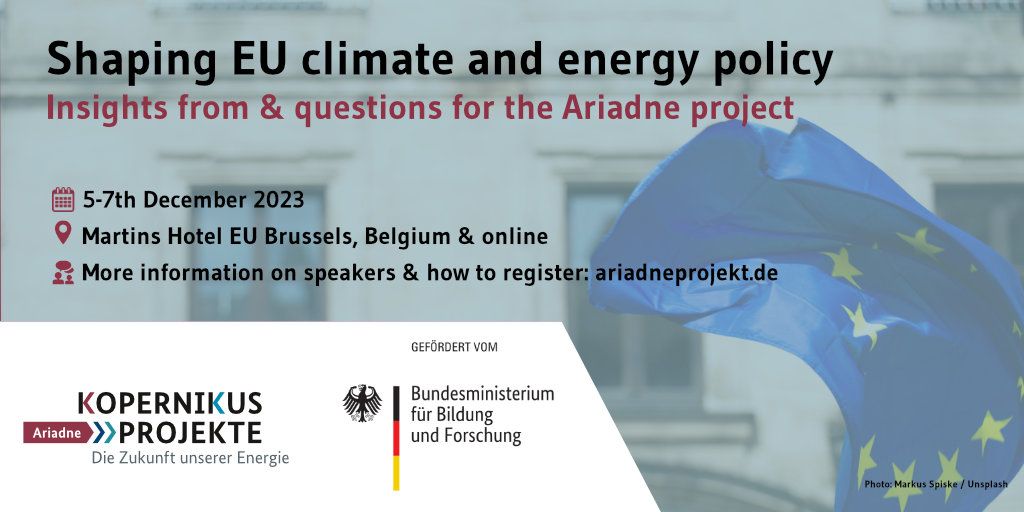Between Climate Action and Competitiveness: Towards a coherent industrial policy in the EU
Principles for an EU industrial policy for climate action
- Publication
- Citation
Martini, Leon, Benjamin Görlach, Lena Kittel, Darius Sultani and Nora Kögel (2024): Between climate action and competitiveness: towards a coherent industrial policy in the EU. Ecologic Institute, Berlin.
The pandemic, supply chain challenges, and growing geopolitical tensions have led decision makers and scholars to reconsider the roles of public policy and state intervention. For the EU, this conversation comes as the tensions between two imperatives – achieving climate neutrality while maintaining industrial competitiveness – are becoming more apparent. As the global race for clean technology leadership intensifies, driven by technological advances as well as ambitious industrial policies in other world regions, Europe faces the challenge to transform its existing energy-intensive industries like steel and cement, and at the same time secure a competitive edge in key clean technologies like solar PV, wind turbines, and electrolysers. These two domains overlap where new technologies can help to decarbonise existing value chains, in particular relating to the (direct or indirect) electrification of processes previously operated with fossil inputs, such as electrolysers for green H2 and large heat pumps.
The EU's response to these challenges includes the Net Zero Industry Act (NZIA) and the Clean Industrial Deal, drawing on a comprehensive analysis of the future of European Competitiveness, published in September 2024 by Mario Draghi. Still, the existing instruments and funding tools that constitute the EU's climate-related industrial policy are a diverse array that would benefit from greater coordination, clarity, ambition, and resources. Addressing these gaps could significantly enhance its effectiveness in tackling market failures and supporting the scaling of clean technologies.
Against this background, this new report from Ecologic Institute, PIK and IER discusses what EU industrial policy should look like, what principles it should follow and how it interacts with the set of existing EU climate and energy policies. The report proposes six principles for an EU industrial policy for climate action and discusses the 'industrial policy trilemma' of navigating goals in climate action, competitiveness, and security.
The report has been produced as a part of the Ariadne project, funded by the German Federal Ministry of Education and Research.






